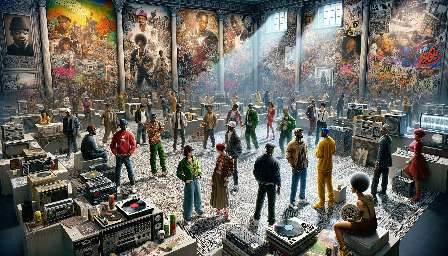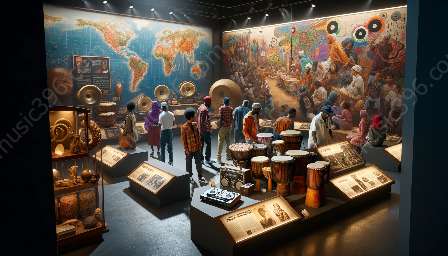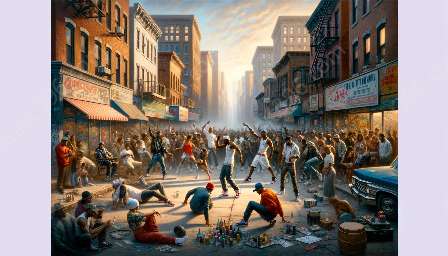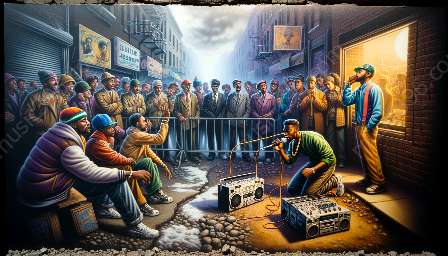Hip-hop has become a powerful force in shaping contemporary youth culture. It has not only revolutionized the global musical landscape but also has deeply influenced urban culture. In this topic cluster, we'll delve into the multifaceted role of hip-hop in youth culture and its broader impact on the music industry.
The Origins of Hip-Hop
Hip-hop emerged as a cultural movement in the 1970s within the African American and Latino communities in the South Bronx, New York City. It served as a form of creative expression and a means for marginalized youth to voice their experiences and struggles, often related to urban life and societal inequalities. Through its four foundational elements of DJing, MCing, graffiti, and breakdancing, hip-hop provided an outlet for self-expression and community building.
Hip-Hop and Youth Culture
Over the decades, hip-hop has evolved into a global phenomenon, resonating with youth across the world due to its themes of empowerment, social commentary, and cultural identity. It has provided a platform for young individuals to express themselves, often addressing pressing social and political issues such as racism, poverty, and systemic injustice. Hip-hop's influence extends to fashion, language, and artistic expression, shaping the way young people engage with and interpret their environments.
The Global Musical Landscape and Hip-Hop
Hip-hop has significantly impacted the global musical landscape, transcending geographical and cultural barriers. Its fusion of diverse musical styles, including sampling from various genres, has contributed to the genre's versatility and widespread appeal. From the streets of New York to the favelas of Brazil and the townships of South Africa, hip-hop has permeated local music scenes and provided a platform for marginalized voices to be heard on a global scale.
Urban Culture and Hip-Hop
Urban environments have played a central role in the development and evolution of hip-hop. The genre emerged from the challenges and experiences of inner-city life, offering a form of creative resistance against oppressive social conditions. Hip-hop's influence on urban culture can be observed in the proliferation of street art, fashion trends, and the emergence of hip-hop communities as hubs for creativity and innovation.
The Influence of Hip-Hop on Youth
For many young people, hip-hop serves as a source of inspiration and empowerment. Its emphasis on authenticity and self-expression resonates with individuals navigating the complexities of adolescence and searching for their place within society. Hip-hop has also provided a platform for mentorship and community engagement, offering young artists opportunities for artistic development and social activism.
Hip-Hop's Role in Social Change
As hip-hop continues to evolve, it maintains its position as a catalyst for social change. Through its lyrical content and outspoken artists, hip-hop has sparked conversations about pressing issues such as racial inequality, police brutality, and economic disparities. It has mobilized youth to advocate for change and use their voices to challenge prevailing injustices in society.
Conclusion
Hip-hop's impact on youth culture and the global musical landscape is undeniable. Its ability to unite individuals across diverse backgrounds and serve as a platform for critical dialogue illustrates its enduring relevance. As urban and hip-hop cultures continue to intersect, hip-hop remains a dynamic and vital force in shaping the experiences and aspirations of young people worldwide.




























